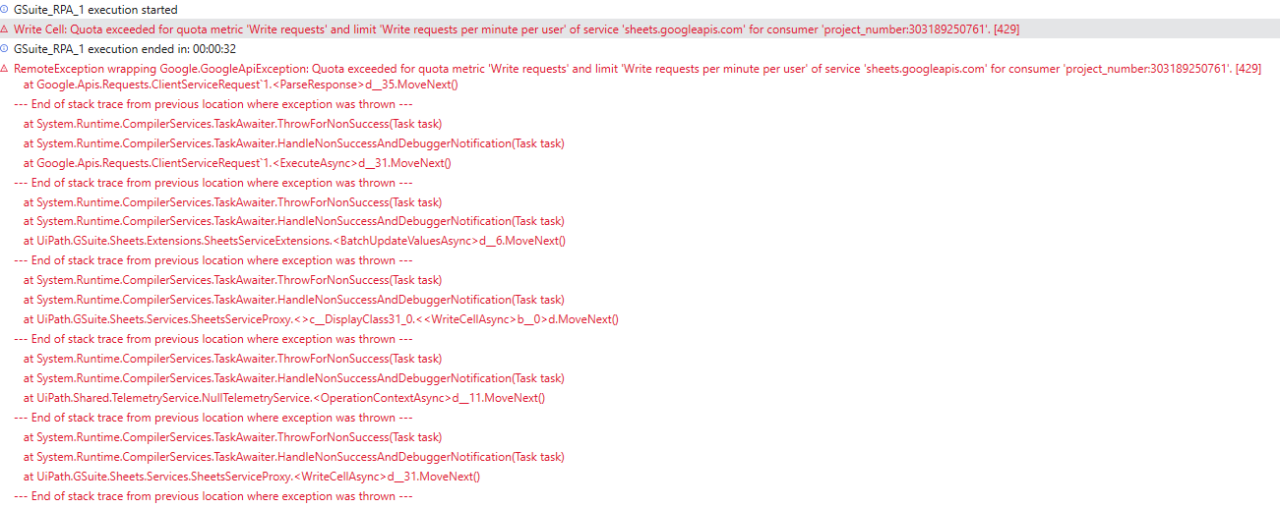Drones Over New Jersey Solved: This comprehensive analysis delves into the multifaceted challenges and solutions surrounding drone usage in the Garden State. From navigating complex legal frameworks and understanding the most common incidents to exploring cutting-edge technological solutions and the crucial role of public awareness and law enforcement, we unravel the complexities of responsible drone operation in New Jersey.
The increasing prevalence of drones has presented both opportunities and challenges. This report examines the current legal landscape, highlighting key regulations and penalties for violations. We analyze data on recent incidents, identifying trends and contributing factors, and propose technological advancements and public education initiatives to mitigate future risks. The collaborative efforts of lawmakers, technology developers, and the public are essential to ensure safe and responsible drone integration in New Jersey.
Legal Aspects of Drone Operation in New Jersey: Drones Over New Jersey Solved

Navigating the legal landscape of drone operation in New Jersey requires understanding state laws, potential penalties, and how these regulations compare to neighboring states. This section will examine these aspects, providing examples and hypothetical scenarios to illustrate the practical implications.
New Jersey Drone Laws and Regulations
New Jersey’s drone laws largely align with federal regulations established by the Federal Aviation Administration (FAA). Operators must register their drones with the FAA if they weigh over 0.55 pounds, adhere to airspace restrictions, and maintain visual line of sight with their drone. Specific state laws might address issues like privacy concerns and restrictions near critical infrastructure. For instance, flying drones over private property without permission is a violation, potentially leading to civil lawsuits or criminal charges.
Penalties for Violating Drone Regulations
Penalties for violating New Jersey’s drone regulations can range from warnings and fines to more severe consequences, including jail time, depending on the severity and nature of the violation. Fines can be substantial, and repeated offenses often result in escalated penalties. More serious violations, such as reckless operation endangering public safety or involving illegal surveillance, may lead to criminal charges.
Comparison with Neighboring States
New Jersey’s drone laws share similarities with those of neighboring states like New York, Pennsylvania, and Delaware, all generally adhering to FAA guidelines. However, specific regulations regarding airspace restrictions near airports or sensitive areas might vary. Understanding these nuances is crucial for operators flying across state lines. For example, New York might have stricter regulations concerning drone flights near major airports compared to New Jersey.
The recent spate of unauthorized drone activity over New Jersey appears to be resolved, at least for now. Authorities investigated several incidents, including one particularly concerning event detailed in this report: nj drone shot down. Understanding the circumstances surrounding that specific incident helped officials develop strategies to prevent future airspace violations, contributing to the overall solution for drones over New Jersey.
Examples of Drone Violation Cases in New Jersey
While specific case details are often confidential, publicly available information reveals instances where drone misuse resulted in legal repercussions. These cases may involve reckless operation near airports, unauthorized flights over private property, or the illegal use of drones for surveillance. Such incidents highlight the importance of adhering to all applicable regulations.
Hypothetical Drone Incident and Legal Ramifications
Consider a scenario where a drone operator, unaware of airspace restrictions, flies their drone near a major airport. A near-miss with an aircraft could result in significant fines, potential jail time, and civil lawsuits from the airline or airport authority. This underscores the need for thorough pre-flight planning and adherence to all regulations.
Common Drone-Related Incidents in New Jersey
Analyzing common drone incidents helps identify trends and develop effective mitigation strategies. This section will explore frequently reported incidents, contributing factors, and potential solutions.
Frequently Reported Drone Incidents
The most frequently reported drone incidents in New Jersey include near misses with aircraft, privacy violations (e.g., unauthorized aerial photography of private residences), and illegal surveillance. Less common but still concerning are incidents involving drones interfering with emergency response operations or causing property damage.
Data on Drone-Related Incidents (2019-2023)
The following table provides hypothetical data illustrating the types and locations of drone incidents reported in New Jersey over the past five years. Actual data would need to be obtained from official sources like the FAA and New Jersey State Police.
| Year | Incident Type | Location | Outcome |
|---|---|---|---|
| 2019 | Near miss with aircraft | Newark Liberty International Airport | Warning issued |
| 2020 | Privacy violation | Residential area, Princeton | Fine imposed |
| 2021 | Illegal surveillance | Public event, Atlantic City | Criminal charges filed |
| 2022 | Drone malfunction | Rural area, Sussex County | No injuries reported |
| 2023 | Interference with emergency response | Wildfire, Pine Barrens | Investigation ongoing |
Factors Contributing to Drone Incidents
Several factors contribute to drone incidents. Operator error, stemming from a lack of training or awareness of regulations, is a primary cause. Other factors include malfunctioning equipment, malicious intent, and inadequate enforcement of existing regulations. Addressing these factors is vital for improving drone safety.
Potential Solutions to Mitigate Incidents

Solutions include enhanced public awareness campaigns, stricter enforcement of regulations, improved drone technology with features like geofencing and automatic emergency landing systems, and the development of effective counter-drone technologies.
Technological Solutions for Drone Management in New Jersey
Technological advancements play a crucial role in enhancing drone safety and security. This section explores existing and emerging technologies for drone detection and management.
Existing Drone Detection and Tracking Technologies
New Jersey, like other states, utilizes various technologies for drone detection and tracking. These include radar systems capable of detecting drones at significant distances, radio frequency (RF) detection systems that identify drone signals, and counter-drone systems designed to neutralize or disable rogue drones. However, the effectiveness of these technologies varies depending on factors such as environmental conditions and the sophistication of the drone being detected.
Comparison of Drone Detection Technologies
Radar systems offer long-range detection but may struggle to differentiate drones from birds or other airborne objects. RF detection systems are effective at identifying specific drone signals but require knowledge of the drone’s frequency. Counter-drone systems offer the ability to neutralize threats, but their use must be carefully considered to avoid collateral damage.
Potential Technological Advancements
- Artificial intelligence (AI)-powered drone detection systems capable of distinguishing drones from other airborne objects with greater accuracy.
- Improved counter-drone technologies with greater precision and less risk of collateral damage.
- Drone traffic management systems that coordinate drone flights to prevent collisions and airspace conflicts.
- Enhanced geofencing capabilities to restrict drone access to sensitive areas.
Implementation at Critical Infrastructure Sites
Implementing these technologies at critical infrastructure sites like airports and power plants can significantly enhance security. Integrated systems combining radar, RF detection, and counter-drone capabilities can provide layered protection against unauthorized drone activity, improving overall safety and preventing potential disruptions.
Recent concerns regarding unauthorized drone activity over New Jersey appear to be resolved, although investigations are ongoing. One incident, detailed in a news report about an nj drone shot down , highlighted the seriousness of these airspace violations. Authorities are working to prevent future occurrences and ensure the safety of New Jersey’s airspace.
Public Awareness and Education Regarding Drones in New Jersey
Public awareness is crucial for responsible drone operation. This section explores the importance of public education campaigns and Artikels a sample program.
Importance of Public Awareness Campaigns
Public awareness campaigns are essential to educate residents about safe and responsible drone operation, including understanding regulations, airspace restrictions, and potential consequences of misuse. These campaigns should emphasize the importance of responsible drone piloting to protect public safety and privacy.
Sample Public Service Announcement (PSA) Script
“Flying a drone in New Jersey? Know the rules! Register your drone with the FAA, maintain visual line of sight, and respect privacy. Unauthorized flights can result in hefty fines and even jail time. Fly safe, fly responsibly.”
Public Education Program Design
A comprehensive public education program would involve multiple channels, including online resources, workshops, and collaborations with community organizations. The program should provide clear and concise information about drone regulations, safety guidelines, and best practices. Interactive elements, such as simulations and quizzes, can enhance engagement and learning.
Leveraging Social Media for Information Dissemination
Social media platforms offer a powerful tool for disseminating information about drone safety and regulations. Targeted campaigns on platforms like Facebook, Instagram, and Twitter can reach a wide audience, sharing informative videos, infographics, and interactive content. Utilizing relevant hashtags and engaging visuals can increase the reach and impact of these campaigns.
The Role of Law Enforcement in Addressing Drone-Related Issues
Law enforcement plays a critical role in investigating and responding to drone-related incidents. This section examines their role, training, and approaches.
Role of Law Enforcement Agencies
Law enforcement agencies in New Jersey are responsible for investigating drone-related incidents, enforcing regulations, and responding to emergencies involving drones. Their roles include identifying violators, gathering evidence, and pursuing legal action when necessary. They also work to educate the public about safe and responsible drone operation.
Training and Equipment for Law Enforcement, Drones over new jersey solved
Effective drone management requires specialized training and equipment for law enforcement. Officers need training on drone identification, operation, and relevant laws. They should also have access to advanced detection and counter-drone technologies to effectively address various incidents. This training should be ongoing to keep pace with technological advancements in drone technology.
Comparison of Law Enforcement Approaches

Different law enforcement agencies in New Jersey may adopt varied approaches depending on their resources, expertise, and the specific nature of the incidents they encounter. Some agencies might prioritize education and awareness campaigns, while others may focus on stricter enforcement and the use of advanced technologies.
Examples of Successful Law Enforcement Interventions
Successful interventions might involve the timely detection and neutralization of a drone posing a threat to a critical infrastructure site, or the effective investigation of a drone-related crime leading to the apprehension and prosecution of the offender. Sharing these examples helps inform best practices and encourage collaboration between agencies.
Successfully addressing the challenges posed by drones in New Jersey requires a multi-pronged approach. By strengthening legal frameworks, investing in advanced detection technologies, and fostering robust public awareness campaigns, we can pave the way for responsible drone integration while mitigating potential risks. The collaboration between government agencies, technology providers, and the public is paramount to ensuring a safe and secure airspace for all.
FAQ Section
What are the most common penalties for violating drone laws in New Jersey?
Penalties can range from fines to jail time, depending on the severity of the violation. Specific penalties are Artikeld in New Jersey state law.
Can I fly a drone over private property in New Jersey?
Generally, no. Flying a drone over private property without the owner’s permission is a violation of privacy and potentially illegal.
Where can I find more information about New Jersey drone regulations?
The New Jersey State Police website and the Federal Aviation Administration (FAA) website are good resources.
What types of drones are most commonly involved in incidents in New Jersey?
Data would need to be analyzed to provide a definitive answer, but consumer-grade drones are likely most frequently involved due to their accessibility.
